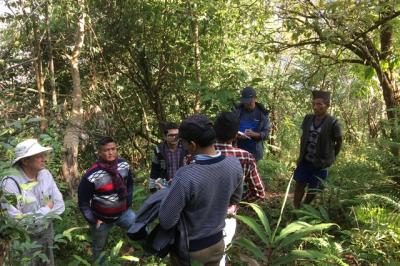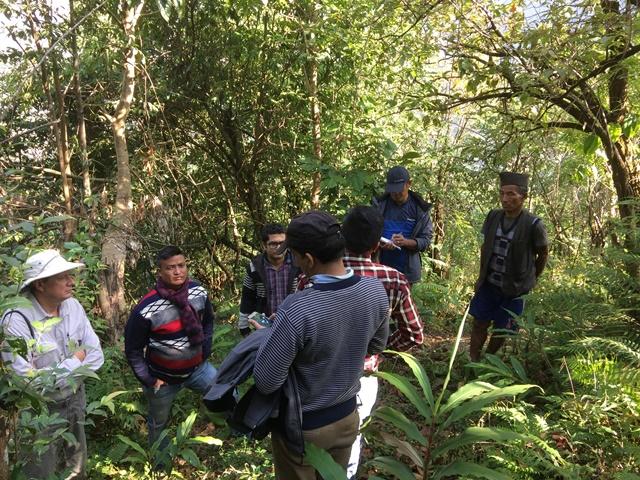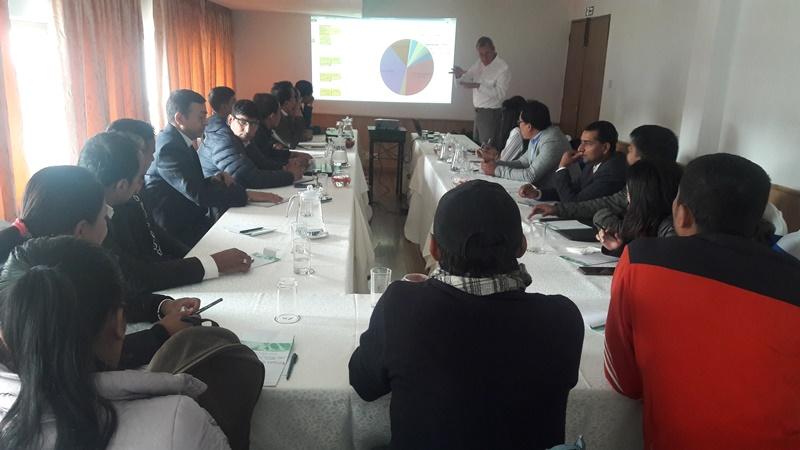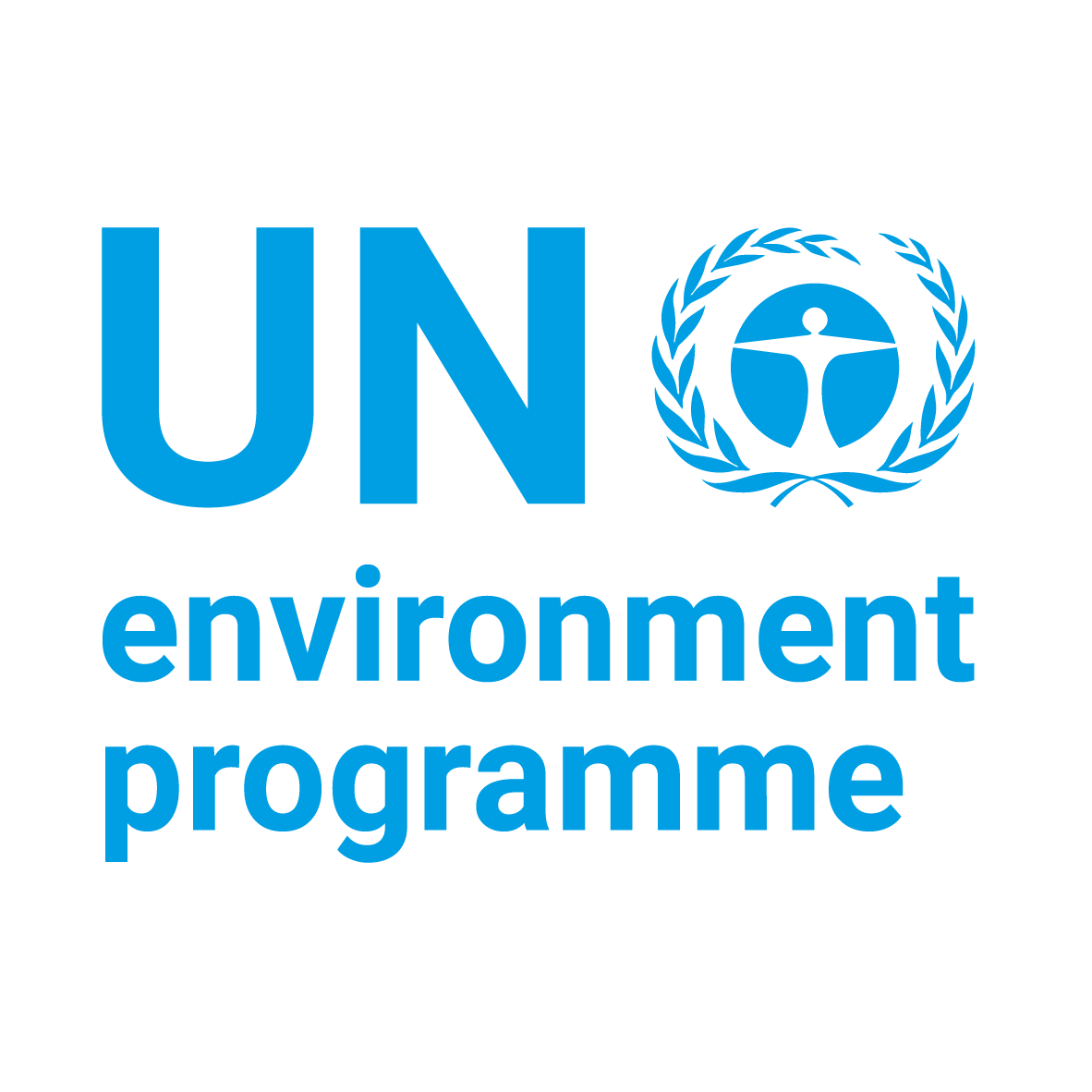During 15-20 November 2018, EbA South conducted the field visit and workshop on “Ecosystem services assessment and cost-benefit analysis of Ecosystem-based Adaptation (EbA) interventions under the EbA South project in Nepal”. The overall objectives were to analyse the supply and demand for ecosystem services generated at a representative EbA South project site, then to consider how these services may change in different response scenarios, and finally to develop a cost benefit analysis of different scenarios. The process was facilitated by the Natural Resources Economist from “Futureworks” employing their participatory modelling tool “Ecofutures”.
Chiti ward of Lamjung district was selected as the study area. The team conducted a field study within Chiti to visit the project interventions, largely covering forest enhancement, agroforestry and livelihood diversification. The interventions visited included fallow/degraded land revegetation, forest enrichment planting, cropland conversion to agroforestry, and alternative livelihood options such as cardamom plantation and beekeeping. The workshop was subsequently organised in Kathmandu with participation of 30 representatives from the Ministry of Forests and Environment, NGOs and academic institutions to consider the impact of different interventions on the supply, demand and risks to Chiti ecosystem services, comparing the scenarios with versus without the EbA South interventions in the plausible futures – especially taking into account climate change. Importantly, data collection to further conduct the cost and benefit analysis of the project interventions was facilitated. The full study report is expected to be completed early 2019.










